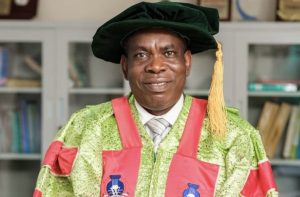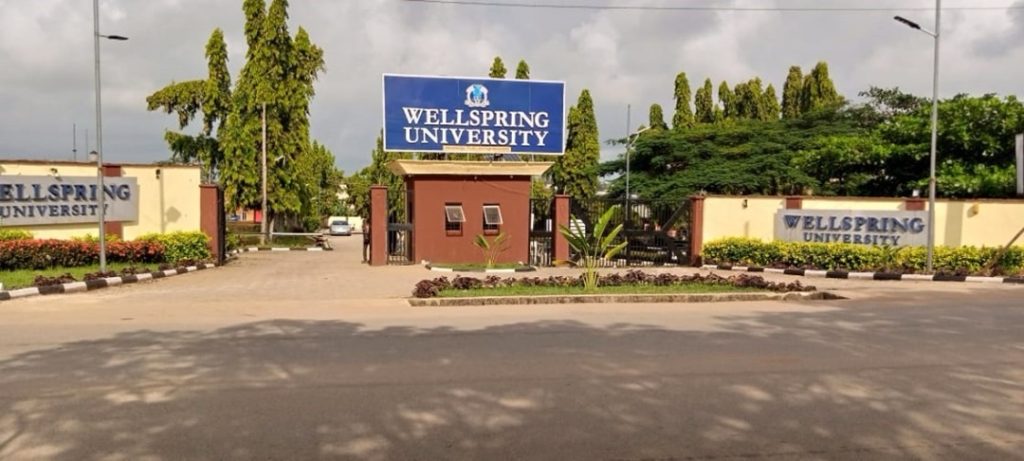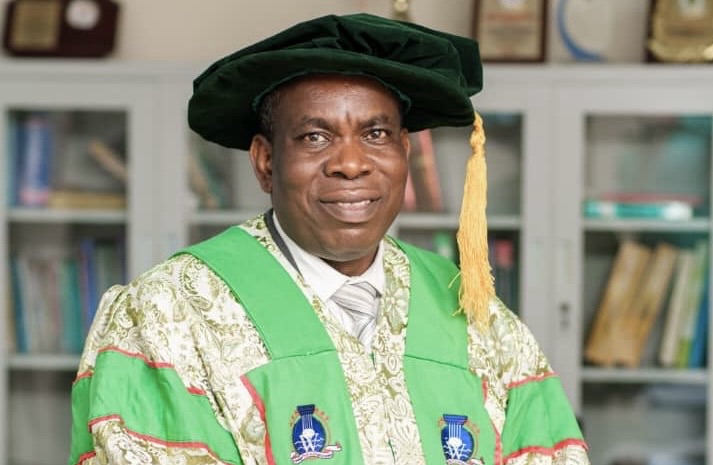In this exclusive interview with The Nigerian Observer’s Edward Oseghe, Professor Isaac Rotimi Ajayi, Vice Chancellor of Wellspring University, Benin City, shares insights on aligning Nigeria’s educational system with the demands of the modern job market. He discusses efforts to make education more accessible, the university’s commitment to character development, research with societal impact, and the role of innovation in grooming future-ready graduates.
Q: What makes Wellspring University unique among Nigerian tertiary institutions?
A: At Wellspring University, our primary focus is the future of our students. We strive to make them future-fit—not just academically sound, but equipped with leadership qualities, creativity, digital skills, and the mindset to thrive in a fast-changing world. Unlike many institutions, we don’t just teach theory—we embed innovation, entrepreneurship, and hands-on learning into our model. This holistic approach sets us apart.
Q: When was the university founded, and how would you assess its progress?
A: We began operations in 2009, and in our 16 years of existence, we’ve graduated 13 cohorts of students who are now contributing meaningfully in various sectors around the world. Some are employed, some are successful entrepreneurs, and many have gone on to pursue postgraduate studies abroad, including PhDs. We’ve grown from offering just 7 programmes to 24, constantly updating our curricula to meet evolving market needs.
Q: Critics argue that many Nigerian university graduates lack practical skills and industry relevance. What’s your take, and where does Wellspring stand?
A: That criticism is valid in many cases, but not here. We have taken deliberate steps to close that gap. Entrepreneurship education is central to our curriculum. We also require industrial training and internships for students in disciplines like technology and mass communication. Additionally, we focus our research efforts on real-world issues that have direct societal benefits, rather than academic exercises with little application.

Q: Given the current economic challenges, does Wellspring offer flexible payment options for students?
A: Absolutely. We understand the realities families face and allow students to pay fees in up to four instalments. If students encounter specific difficulties, we’re open to discussion and workable solutions. We’re also introducing a work-study programme that allows students to earn stipends by working within the university—particularly beneficial for those from indigent backgrounds.
Q: Has the university adopted the new CCMAS system by the National Universities Commission?
A: Yes, we have. CCMAS, in our view, is a more detailed version of the previous BMAS system. We’ve been part of its implementation from the beginning and are already running our programmes in alignment with its requirements.
Q: Wellspring’s Nursing Science programme is said to be top-rated. Could you elaborate?
A: Indeed, our Faculty of Nursing is fully accredited by both the National Universities Commission and the Nursing and Midwifery Council of Nigeria. We have highly qualified faculty and top-notch laboratory facilities. Feedback from stakeholders, including council officials, has affirmed our status as a centre of excellence in nursing education.
Q: Are there academic exchange programmes or international collaborations in place?
A: While economic constraints have made physical exchange programmes difficult, we collaborate with international academics who deliver online lectures and support research projects. We’re also in the process of establishing formal partnerships with foreign universities to enhance our global reach and academic offerings.
Q: How has the university maintained a stable academic calendar, free from strikes and disruptions?
A: By God’s grace, we’ve enjoyed uninterrupted academic sessions since inception. Our environment is peaceful and engaging, and we prioritize open communication with staff and students. This fosters harmony and eliminates the triggers of strikes or unrest.
Q: What’s the student-to-lecturer ratio, and what infrastructure supports quality education at Wellspring?
A: Our lecturer-to-student ratio averages around 1:11, which is exceptional. We have modern classrooms, fully equipped laboratories, a well-stocked physical and e-library, and other learning resources that support academic excellence and innovation.

Q: Nigeria produces highly educated individuals, yet the country struggles with economic and leadership challenges. How does Wellspring prepare students to lead and be self-sufficient?
A: Leadership training is mandatory for all graduating students. We integrate leadership development into sports, extracurriculars, and coursework. Our Centre for Skills Acquisition also empowers students with vocational training in areas such as carpentry, agriculture, and garment making. Some of the furniture in my office was made by our students—this is the kind of practical empowerment we provide.
Q: Does Wellspring host seminars and workshops to address social issues and foster community engagement?
A: Certainly. We regularly host seminars, public lectures, and workshops targeting both students and the wider community. For example, we recently planned a seminar on financial literacy and investment. These events are part of our community service mandate, aimed at broadening minds and combating ignorance and antisocial tendencies through education.
Q: Many students entering tertiary institutions struggle academically. How does the university address this?
A: Weak academic foundations are a widespread issue. At Wellspring, we identify struggling students early and provide additional academic support to bring them up to speed. It’s part of our commitment to not just admit students, but to ensure they succeed.
Q: Exam malpractice is a serious concern in Nigeria. What’s your stance, and how do you address it?
A: Exam malpractice is a significant threat to educational integrity. At Wellspring, we enforce strict academic honesty policies. We also promote a culture of ethics and responsibility, both in and out of the classroom. We believe integrity must be part of the DNA of any educated individual.


